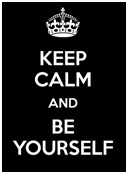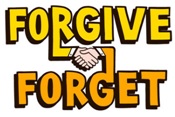|
 |
|
 |
Happiness
Happiness is... Satisfying your needs for love, self-respect, money and fulfilment.
True happiness isn’t contentment (from doing the same things) but creativity (doing new and difficult things).
Where are people happiest?
According to the World Happiness Report,the world's happiest countries in 2013 were :
1st. Denmark 2nd Norway 3rd Switzerland
America was 17th and Britain 23rd.
How to be happy (the 4 L’s)
1. Love a) find somebody to share your life with The happiest partners are best friends with the same aims and values. Friendship is more important than sex.
b) give family and friends your time and attention They will return your love and be there when you need them.
c) help others even when it hurts you Selfishness kills happiness, because people won’t love you so much. If you feel down, do something for someone else! But don’t forget yourself. To love others, you must love and respect yourself.
d) know yourself Your relationships will suffer, if you don’t:
e) be yourself People won’t like you, if you try to be something you aren’t.
f) forgive and forget Abandon resentment and wipe the slate clean!
2. Learning
3. Life a) be healthy Lots of exercise with a healthy diet including:
b) value life Be grateful for what you’ve got and take full advantage of your opportunities with passion and
enthusiasm. Use every minute to make your life better and more worthwhile.
c) enjoy beauty Look for it in art, music, relationships and nature.
d) freedom Do what you want to do but remember your responsibilities to others (see point 1 above). e) money Enjoy the material things like good food and drink. But don’t be so preoccupied with making money that you:
Simplify your life – make do with fewer things, so you don’t have to earn so much. f) overcome suffering and stress
g) write a thank you letter Writing connects you with other people and makes you feel good.
4. Laughter
How can you laugh, beat stress (see also stress management) and find peace of mind?
a) be positive
b) humour Life is difficult enough, so laugh about it.
c) high aspirations, low expectations
d) get the right work-life balance
e) don’t be a perfectionist Have high standards but accept that sometimes you will fail and things will go wrong. f) values and beliefs
g) solve your problems
Key quotes explained
“Good conscience, good health, occupation, knowledge and freedom” - Thomas Jefferson’s (American president, pictured right) definition of happiness. Peace of mind, virtue, health, liberty and worthwhile activity are vital to happiness. “The glow of a warm thought”, Jefferson also said was worth more to him than money. Notice he doesn’t mention what you look like – being beautiful inside is much more important. Another American president, Harry S. Truman, described his workplace (the White House) as the world’s finest prison. He wasn’t totally happy because he was imprisoned by the awesome responsibilities of his job. He and Jefferson would have agreed with the Greek philosopher, Epictetus: “Anywhere is a prison if you don’t wish to be there”.
“Happiness depends on wisdom” - Sophocles (Greek playwright, pictured right) A happy person continually thirsts for knowledge (including self-knowledge) and the character building that comes from challenging and exciting experiences . “Happiness lies not in the mere possession of money, it lies in the joy of achievement, in the thrill of creative effort”, said the American president,Franklin D. Roosevelt.
“The love you take is equal to the love you make” - The Beatles (from their Abbey Road album) - pictured right. Love and self-sacrifice make you happier than anything else. The most miserable people are self-centred and selfish. “It is more blessed to give than receive”, Jesus said.
“True happiness is...to enjoy the present, without anxious dependence upon the future” - Seneca (Greek philosopher). Live for the present and don’t be weighed down by the past or the future. Count your blessings and have a clear conscience. “The happy man is one who possesses what he wants and wants nothing that is evil”, St. Augustine said.
“No man is an island” - John Donne (English poet, pictured right) You need other people to be happy.
Best books
Charles Handy (pictured right) , The Age of Unreason (1989) The happiest people have “portfolio” lives with a combination of different types of work:
(see The Age of Unreason for more detail in the Business Books section) Erich Fromm (pictured right), To Have or To Be? (1976) What you have (having) is much less important than being - who you are and what gives meaning to your life (like love). Examples are:
Consumer philosophy (I am what I have and what I consume) leads to spiritual emptiness and unhappiness.
David Myers (pictured right) , The Pursuit of Happiness (1993) Don’t want what you can’t have or can’t do, and be thankful for what you’ve got. You need talent as well as effort, so find something you can do well.
Alvin Toffler (pictured right) , Future Shock (1970) To help with change and stress, we need “stability zones” like family, friends, religion and hobbies.
Aristotle (pictured right), Nicomachean Ethics (350 BC) To be happy, you must think about your life, use all your abilities and be a good (i.e. virtuous) person.
Dale Carnegie (pictured right), How to Stop Worrying and Start Living (1944) Count your blessings. To remind himself of this, Carnegie stuck this rhyme on his shaving mirror: "I had the blues because I had no shoes, Until upon the street, I met a man who had no feet”.
Timothy Ferriss (pictured right), The 4-Hour Working Week (2007) Do what you think is worthwhile and seize your opportunities in a shorter working week (using technology to save time).
Virginia Satir (pictured right), Conjoint Family Therapy (1964) Happy people are created in families which develop their self-esteem through love, non-critical acceptance and recognition, and open, honest two-way communication. |
|
|
||
|
|
|
||
|
||
| Copyright © wisdomtowin.com All Rights Reserved | ||
|

























